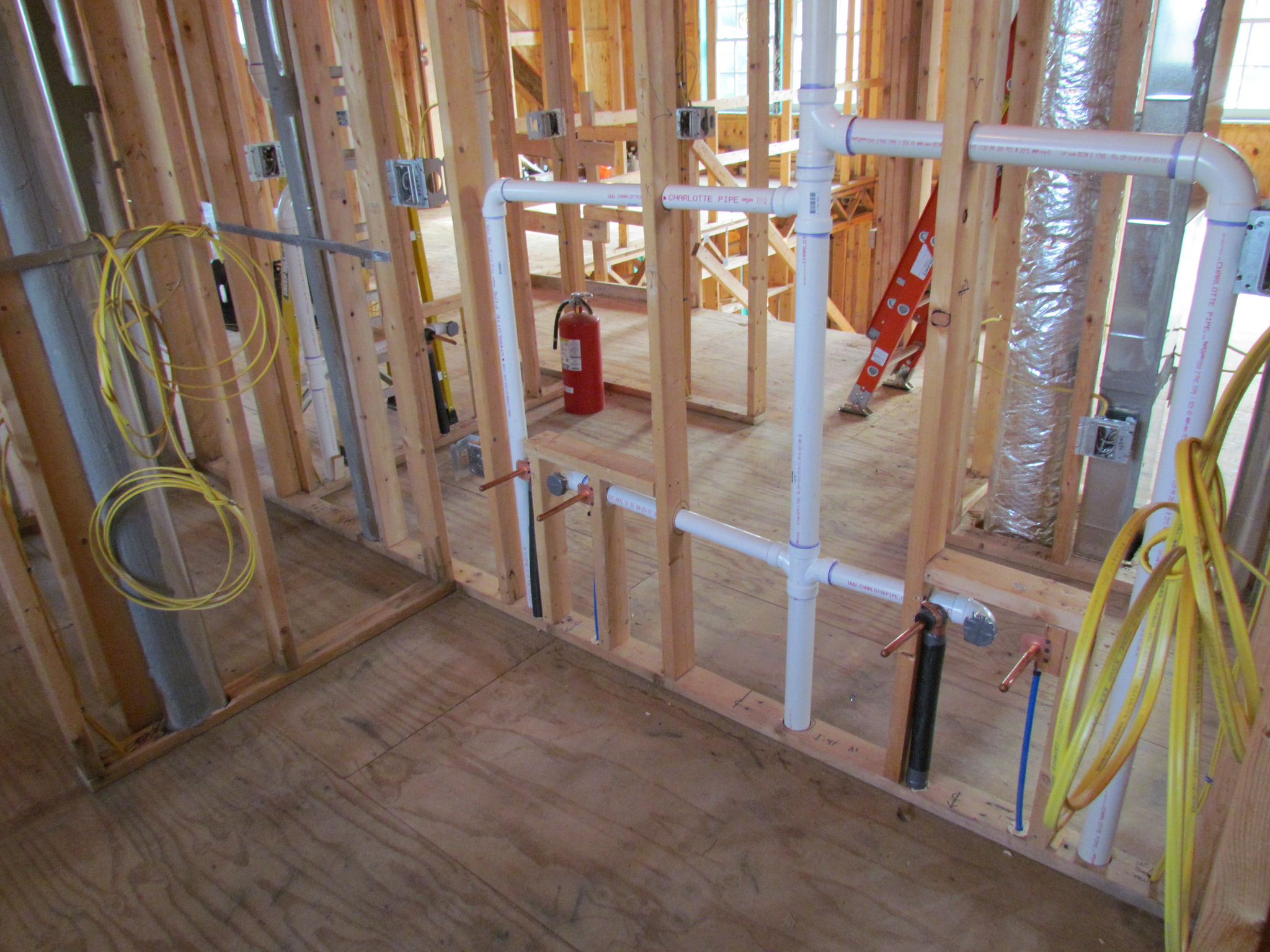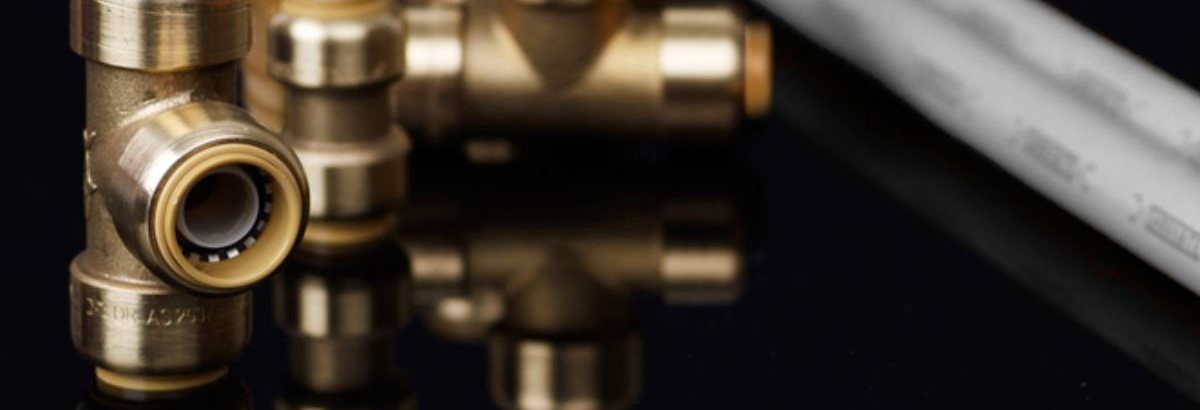An Overview to Your House's Plumbing System Anatomy
An Overview to Your House's Plumbing System Anatomy
Blog Article
What are your ideas with regards to The Inner Workings of Your Home's Plumbing?

Comprehending just how your home's pipes system works is crucial for each property owner. From delivering tidy water for drinking, food preparation, and showering to safely removing wastewater, a properly maintained plumbing system is essential for your family members's health and comfort. In this comprehensive overview, we'll check out the elaborate network that makes up your home's pipes and offer tips on maintenance, upgrades, and managing typical issues.
Intro
Your home's plumbing system is greater than simply a network of pipes; it's an intricate system that ensures you have accessibility to clean water and reliable wastewater removal. Knowing its components and exactly how they collaborate can aid you avoid pricey repairs and make sure everything runs smoothly.
Standard Components of a Plumbing System
Pipelines and Tubing
At the heart of your pipes system are the pipes and tubes that bring water throughout your home. These can be constructed from different products such as copper, PVC, or PEX, each with its benefits in regards to resilience and cost-effectiveness.
Components: Sinks, Toilets, Showers, and so on.
Fixtures like sinks, bathrooms, showers, and bath tubs are where water is used in your house. Understanding exactly how these components connect to the pipes system helps in identifying problems and preparing upgrades.
Shutoffs and Shut-off Factors
Shutoffs regulate the circulation of water in your plumbing system. Shut-off valves are essential during emergency situations or when you require to make repair work, enabling you to isolate parts of the system without interrupting water circulation to the entire house.
Supply Of Water System
Key Water Line
The major water line attaches your home to the municipal water or a private well. It's where water enters your home and is distributed to numerous components.
Water Meter and Stress Regulator
The water meter steps your water use, while a stress regulator ensures that water flows at a risk-free pressure throughout your home's pipes system, stopping damages to pipelines and components.
Cold Water vs. Hot Water Lines
Comprehending the difference in between cold water lines, which provide water straight from the major, and warm water lines, which carry heated water from the water heater, assists in fixing and planning for upgrades.
Drain System
Drain Pipes Water Lines and Traps
Drain pipelines bring wastewater far from sinks, showers, and bathrooms to the sewer or septic tank. Traps prevent sewer gases from entering your home and also catch particles that might trigger blockages.
Ventilation Pipes
Ventilation pipes permit air right into the water drainage system, protecting against suction that might reduce water drainage and trigger traps to empty. Appropriate ventilation is important for maintaining the honesty of your pipes system.
Value of Appropriate Drainage
Ensuring proper water drainage protects against backups and water damages. On a regular basis cleaning up drains and maintaining catches can stop expensive fixings and expand the life of your pipes system.
Water Heating Unit
Types of Hot Water Heater
Hot water heater can be tankless or conventional tank-style. Tankless heaters heat water as needed, while tanks save heated water for immediate usage.
Updating Your Plumbing System
Factors for Updating
Upgrading to water-efficient fixtures or replacing old pipelines can enhance water quality, reduce water bills, and enhance the value of your home.
Modern Plumbing Technologies and Their Benefits
Discover modern technologies like clever leakage detectors, water-saving commodes, and energy-efficient hot water heater that can conserve cash and lower ecological effect.
Expense Factors To Consider and ROI
Determine the in advance expenses versus long-lasting cost savings when thinking about plumbing upgrades. Many upgrades spend for themselves with decreased energy bills and fewer repair work.
Exactly How Water Heaters Link to the Pipes System
Understanding exactly how water heaters attach to both the cold water supply and hot water distribution lines assists in identifying problems like insufficient warm water or leakages.
Upkeep Tips for Water Heaters
Regularly flushing your water heater to remove sediment, checking the temperature settings, and evaluating for leakages can prolong its life-span and boost power effectiveness.
Common Plumbing Issues
Leaks and Their Causes
Leakages can take place because of aging pipes, loose fittings, or high water pressure. Resolving leaks quickly prevents water damage and mold and mildew development.
Obstructions and Blockages
Clogs in drains and commodes are usually brought on by purging non-flushable products or an accumulation of grease and hair. Using drainpipe screens and being mindful of what goes down your drains pipes can protect against blockages.
Indications of Pipes Issues to Watch For
Low water stress, sluggish drains, foul odors, or unusually high water costs are signs of possible plumbing troubles that should be attended to promptly.
Pipes Maintenance Tips
Normal Evaluations and Checks
Set up annual pipes inspections to capture issues early. Seek signs of leakages, corrosion, or mineral build-up in faucets and showerheads.
Do It Yourself Maintenance Tasks
Easy jobs like cleaning tap aerators, checking for toilet leakages using color tablets, or shielding exposed pipelines in cold climates can protect against major plumbing concerns.
When to Call an Expert Plumber
Know when a pipes concern needs professional experience. Trying complicated repairs without correct knowledge can bring about more damages and higher fixing expenses.
Tips for Reducing Water Usage
Simple routines like fixing leakages immediately, taking shorter showers, and running full tons of laundry and meals can conserve water and reduced your energy expenses.
Eco-Friendly Pipes Options
Consider lasting plumbing products like bamboo for floor covering, which is durable and environmentally friendly, or recycled glass for kitchen counters.
Emergency Readiness
Steps to Take During a Plumbing Emergency
Know where your shut-off valves lie and how to turn off the water system in case of a burst pipe or significant leakage.
Significance of Having Emergency Situation Contacts Useful
Maintain get in touch with details for neighborhood plumbers or emergency situation solutions easily offered for fast feedback during a plumbing crisis.
Environmental Effect and Conservation
Water-Saving Fixtures and Home Appliances
Setting up low-flow taps, showerheads, and commodes can dramatically lower water use without giving up performance.
Do It Yourself Emergency Fixes (When Applicable).
Temporary fixes like using duct tape to patch a leaking pipe or placing a bucket under a dripping faucet can minimize damage until a professional plumber gets here.
Verdict.
Recognizing the makeup of your home's pipes system encourages you to keep it successfully, conserving money and time on repair work. By following normal upkeep routines and remaining notified about modern-day pipes technologies, you can ensure your plumbing system runs successfully for many years to find.
The Anatomy of Your Home s Plumbing System
Understanding the anatomy of your home s plumbing system is essential for any homeowner. It not only helps in identifying potential issues but also facilitates effective communication with professionals when repairs or upgrades are needed. Your home s plumbing system is more than just pipes and faucets; it s a complex network that ensures the efficient and hygienic flow of water in and out of your house. In this blog, we ll dissect the crucial components of your home s plumbing system. For those in Antelope Valley, Brock Plumbing is your trusted partner for all your plumbing needs, ensuring your system functions smoothly and efficiently.
Water Supply System
Main Water Line: This is where your home s plumbing system begins. The main water line connects your home to the public water supply or a private well. Pipes and Shut-off Valves: Pipes distribute water throughout your home. Shut-off valves are crucial for controlling the flow of water and making repairs without shutting off the entire system. Drainage System
Drain Pipes: These pipes carry waste and water away from sinks, toilets, and showers. Vents: Vents allow sewer gases to escape and help maintain proper pressure in the drainage pipes, ensuring efficient flow of wastewater. Traps: Every fixture has a trap, a U-shaped pipe that holds water and prevents sewer gases from entering your home. The most common is the P-trap under sinks. Fixtures and Appliances
Fixtures and appliances are the most interacted with parts of your plumbing system. They include sinks, toilets, showers, dishwashers, and washing machines. Each fixture and appliance has its own supply and drainage connection, ensuring they receive clean water and can dispose of wastewater effectively.
Water Heating System
Your water heater is a crucial component, providing hot water to various fixtures and appliances in your home. It can be tank-based or tankless, with each type having its own set of advantages and maintenance requirements. Regular maintenance is essential to ensure efficient operation and extend the lifespan of the unit.
Sump Pump
In areas prone to flooding or with high water tables, a sump pump is an essential part of the plumbing system. It s installed in the lowest part of your basement or crawlspace and pumps out water that accumulates, preventing flooding and protecting your home from water damage.
Septic System
Homes that are not connected to a municipal sewer system have a septic system and an underground wastewater treatment structure. Understanding how to maintain your septic system is crucial to prevent backups, odors, and early system failure.
Conclusion
Your home s plumbing system is a complex and essential network, ensuring the efficient and hygienic flow of water in and out of your property. Understanding its key components helps in maintaining it properly and identifying issues before they escalate into major problems. For residents in Antelope Valley, Brock Plumbing is dedicated to providing top-notch services, ensuring that every part of your plumbing system is in perfect working order. Trust our team of professionals to handle all your plumbing needs, ensuring your home remains comfortable, safe, and well-maintained.
https://brockplumbinganddrains.com/blog/the-anatomy-of-your-homes-plumbing-system/

I discovered that piece on The Inner Workings of Your Home's Plumbing when looking around the web. Loved our article? Please share it. Help other people find it. Thank you so much for taking the time to read it.
Book Instantly Report this page